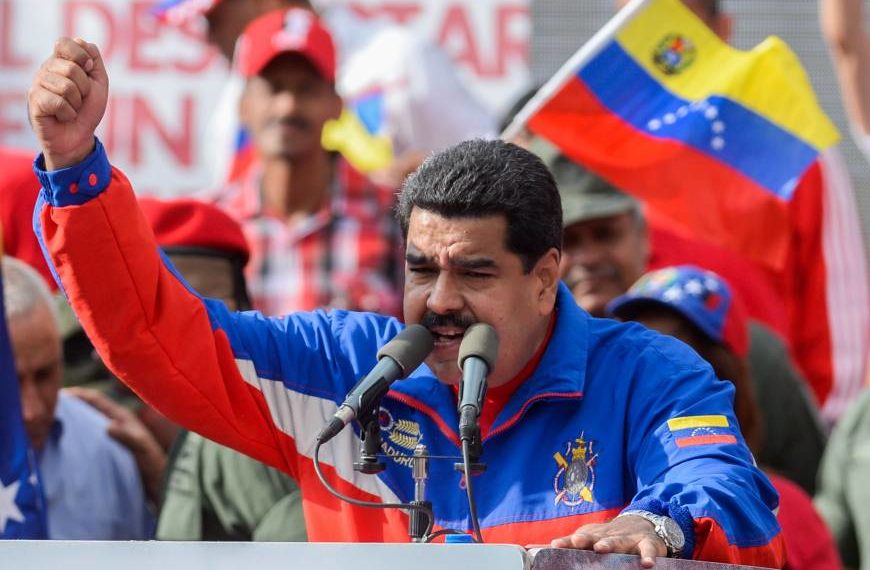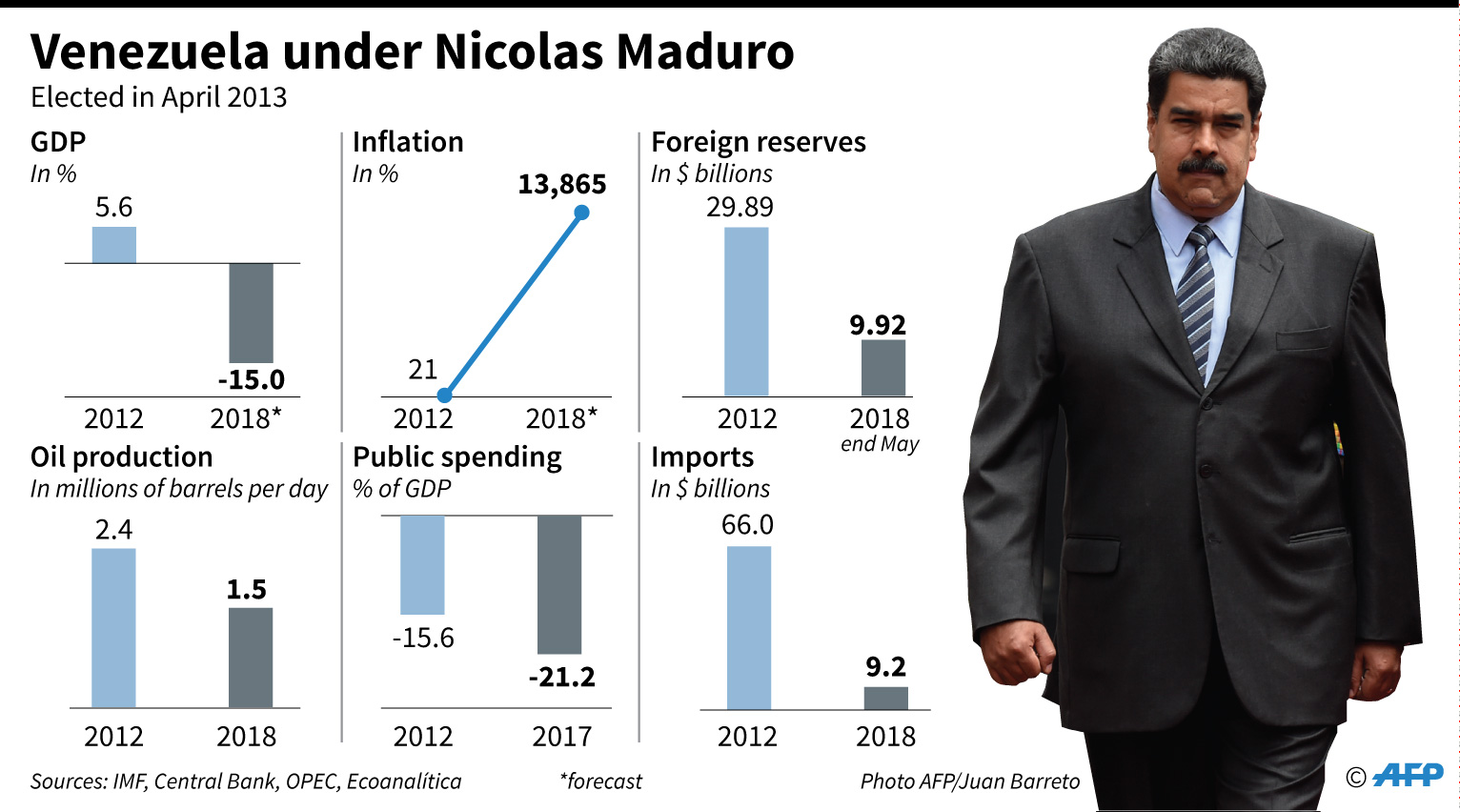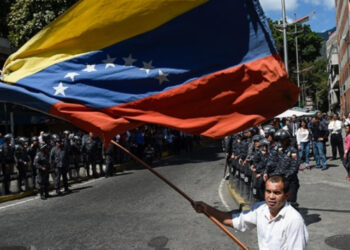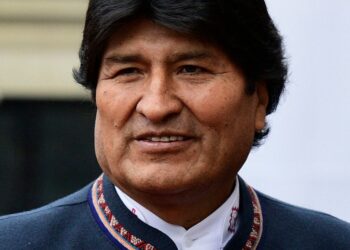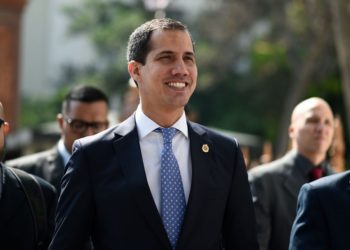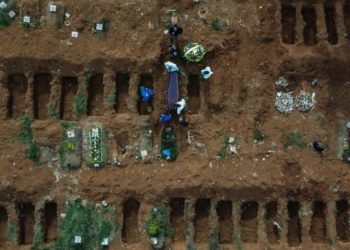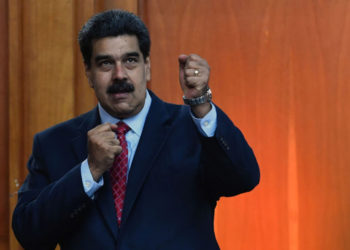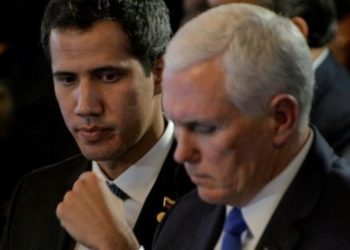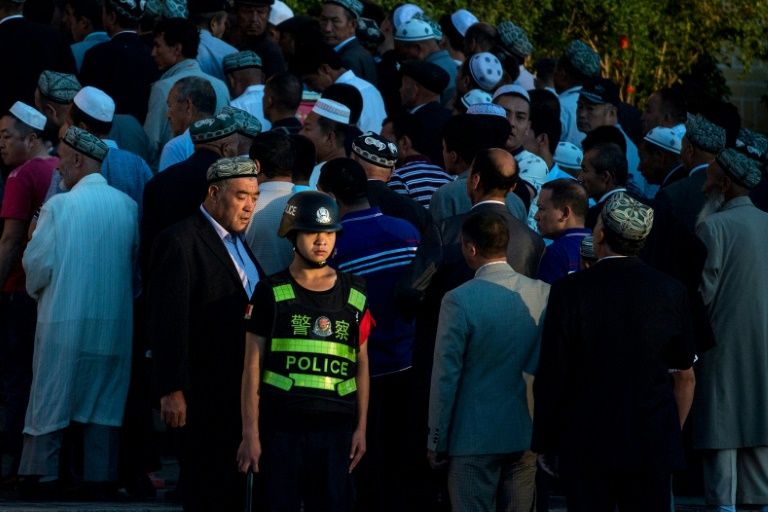Venezuela is facing unparalleled economic, democratic, and institutional collapse.
The gross domestic product has fallen with 50 percent, while the country’s imports have dropped with about 80 percent. Hyperinflation, that began two years ago, has made the country’s currency worthless and vanished the nation’s purchasing power. As a result, the South American country of 32 million is facing a complex humanitarian emergency and more recently, a massive migration and refugee crisis.
Constitutional democracy disappeared. Since 2016, when President Nicolas Maduro’s regime dismantled the competencies of the Congress, Venezuela is a clear authoritarian state. This was exacerbated in August 2017, when the fraudulent national constituent assembly was installed. Not surprisingly, the 2018 Rule of Law Index ranked Venezuela as the world’s worst.
The state capability is declining. Venezuela is a fragile state that some even consider a failed state. The weak state capabilities have been coopted by kleptocracy and racketeering, mainly to extract rents from unlawful mining activities. From a fragile state, Venezuela is transforming into a mafia state.
Venezuela was once one of Latin America’s most prosperous states, and in the 1950s even ranked fourth in terms of per capita GDP worldwide. How could the country collapse?
Authoritarian Populist Measures
In the late 1990s, Hugo Chavez assumed a populist discourse that, among a political crisis, facilitated his election in 1998. Once in office, Chavez used his populist discourse to implement authoritarian measures.
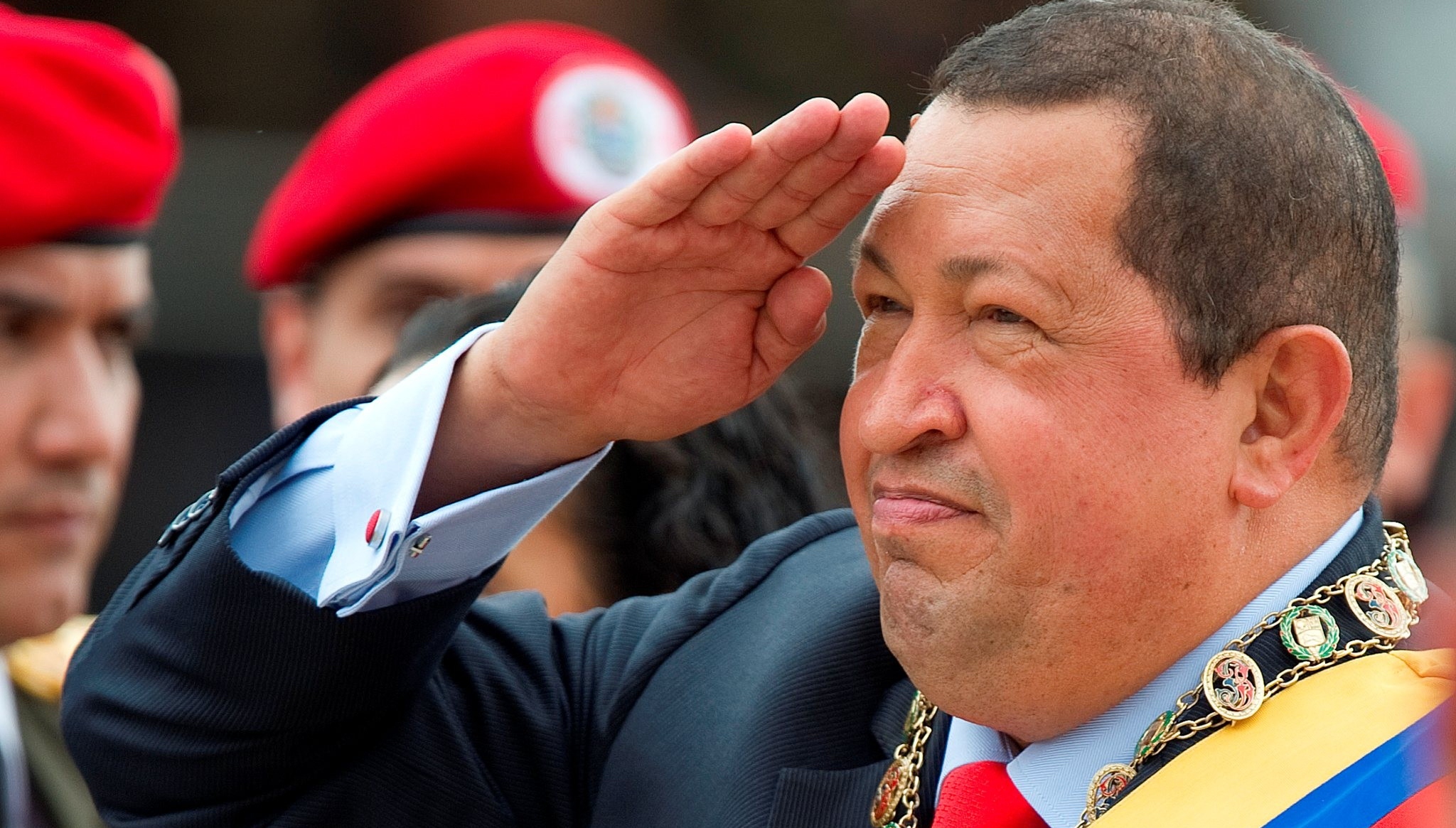
With the support of his constituent assembly that was elected in 1999, Chavez was able to control the Congress and the Supreme Tribunal (with a court-pack in 2004). After that, he decimated the autonomy of several bodies, particularly, the National Oil Company (PDVSA), the Venezuelan Central Bank, and the Armed Forces.
Additionally, Chavez created a new constitutional democracy narrative with the support of the 1999 constituent assembly. Democracy was conceived as the direct participation the people against the corrupted elites. With this idea in mind, Chavez promoted the organization of a parallel state, the so-called “Communal State,” inspired by former Libyan dictator Muammar Gaddafi’s green book.
Oil Boom and Petro-State
Chavez would not have been able to implement his authoritarian measures without the oil boom that took off in 2004. Without functional checks and balances in place, Chavez deviated the oil revenues through extra-budgetary funds. He also depleted the macro stabilization fund with the help of the PDVSA, the Central Bank, and the Supreme Tribunal.
Because the rule of law was dismantled, Chavez became the absolute manager of the oil industry and the oil rents. On top of this, he promoted an irrational and non-accountable public indebtedness without effective control of the Venezuelan Congress.
Clientelist Policies Replace Market Mechanism
During the oil boom and the massive public indebtedness and without rule of law constraints, Chavez began implementing socialist policies that destroyed the market mechanism through arbitrary and centralized controls. Those controls eliminated economic freedom, contract enforcement, and private property safeguards.
Chavez boosted the imports of consumer goods and distributed the oil rent through a huge sector of state-owned enterprises, most of them created as a result of the confiscation of assets of private companies. He promoted clientelist programs based on the corrupted distribution of oil rents and aimed to subordinate the citizens to the government. This facilitated Chavez’s electoral victories between 2006 and 2012.
Without the safeguards of the rule of law, the economy and society as a whole depended on Chavez. It was a perfect dictatorship hidden behind the illusion of welfare: in 2013 and 2015 the United Nations’ Food and Agriculture Organization (FAO) awarded Venezuela for its achievement in food security. Just a few years later, when the collapse demonstrated the fragility of the socialist programs, FAO recognized that Venezuela was facing a crisis “severely affecting food security and healthcare.”
Dream is Over
Nothing lasts forever. The unconstitutional socialist model destroyed the rule of law, and in particular, PDVSA’s autonomy and its oil production capacity, at the same time that oil prices dropped and the debt services increased. These factors created a fiscal shock that led to predatory policies by Maduro’s regime.
In 2013, his administration cut down the imports for the private sector dramatically. Because the domestic economy was already destroyed, this led to a shortage of goods and services, increasing inflation, and a complex emergency that is only getting worse.
The economic and social crisis has undermined Maduro’s popularity. As a result, the opposition won the super-majority in the Venezuelan Congress in 2015. A political victory that, under the rule of law, should have fostered political change and a stable solution for the crisis.
However, because the rule of law had been dismantled, Maduro has been able to block all the Congress’ decisions. When mass protests increased in 2016, Maduro answered not only with repression and massive human rights violations but also with the final stroke to constitutional democracy. In 2017, he convened a fraudulent constituent assembly that usurped all the government’s powers, including the legislative.
Odious Government and Organized Crime
In the absence of checks and balances, corruption undermines the state capability. The fragility of the state institutions facilitated the rise of organized crime that evolved into kleptocracy.
Nowadays, Venezuela is not only an autocratic regime in a weak government but also an odious government with racketeering institutions that control some of the tasks that the government must address.
How to Recover Venezuela
Venezuela collapsed because Hugo Chavez slowly started the decimation of the rule of law in 1999, promoted with a populist discourse and boosted by an oil boom.
How can this collapse be reversed? The absence of an elected president on January 10 provides a new opportunity to promote democratization in Venezuela. Because both the international community and the Venezuelan Congress rejected Maduro’s election in May 2018, it is possible to adopt a strategy oriented to designate a new and legitimate government and promote the recovery of the rule of law.
The U.S. applauds the #LimaGroup for standing up for democracy in #Venezuela and denouncing #Maduro's upcoming sham inauguration. The elections in Venezuela were flawed, unfree, and unfair. We stand with the region to demand the restoration of democracy and fundamental freedoms.
— Secretary Pompeo (@SecPompeo) January 5, 2019
However, recovering the rule of law will not be enough to stop the collapse. Currently, Venezuela’s main problem is not the absence of the rule of law but the presence of a weak and criminal state. Building the state capability without criminal organizations is a fundamental condition for any successful democratic transition.
Disclaimer: The views and opinions expressed here are those of the author and do not necessarily reflect the editorial position of The Globe Post.

